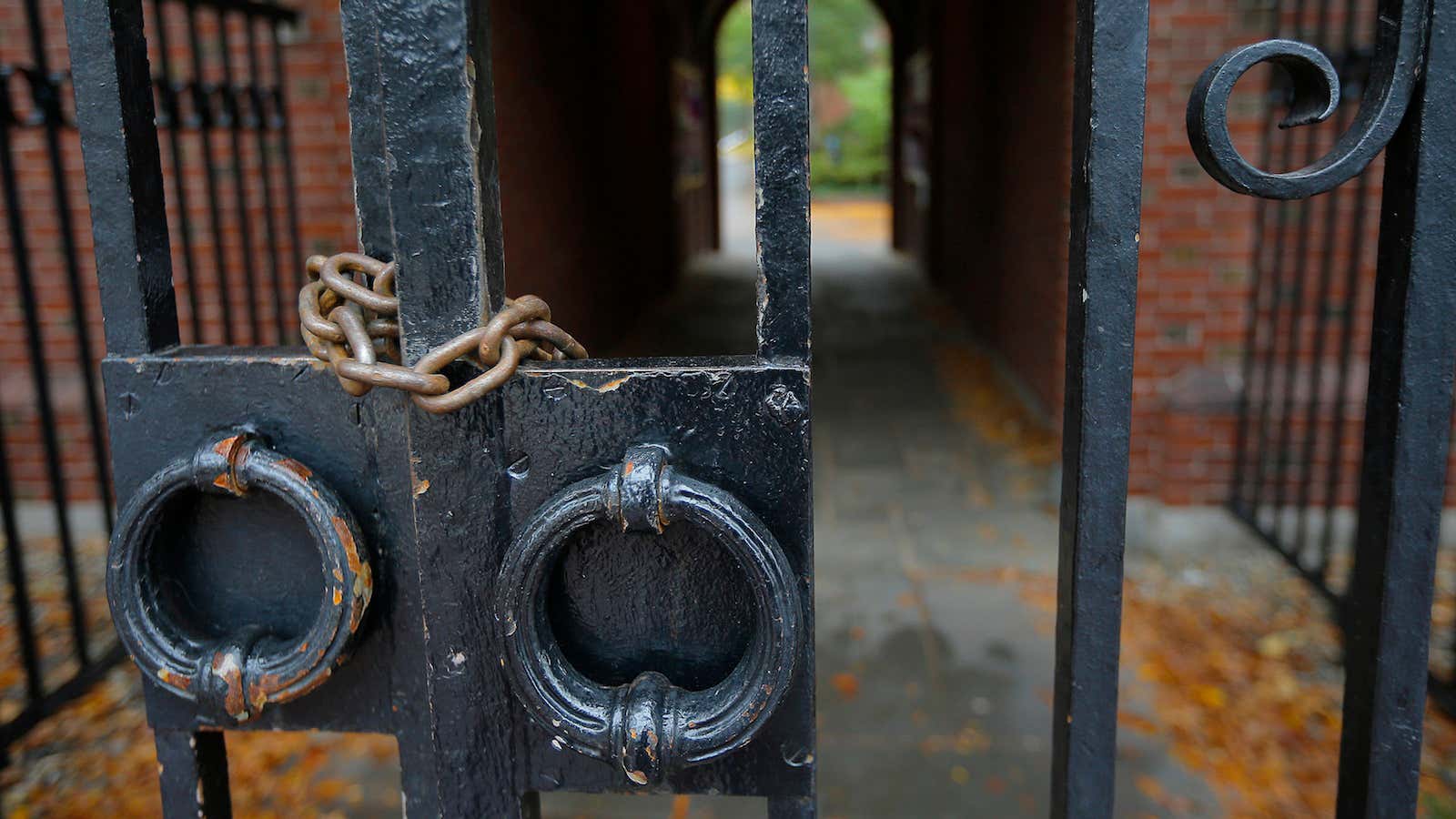Harvard University’s elite final clubs—the sanctum sanctorum of student organizations, glorified in popular media by films like The Social Network—just got delivered some bad news.
Known for being exclusive, privileged, and largely single-gender, the clubs have long been accused of both perpetuating elitism and—in the case of men-only clubs—contributing to a culture of sexual assault on campus. That criticism has become all the more strident since a university report in March found “disturbing practical and cultural implications” for undergraduate life. Among other things, the report said 47% of female Harvard seniors who participated in final club events had experienced “nonconsensual sexual contact” during their time at school. (The all-male, 225-year-old Porcellian Club released its own report contesting those findings.)
Today, university president Drew Faust took action. She announced that, starting with the students who enter the university in 2017, undergraduates who are members of any single-gender final clubs, as well fraternities or sororities (which are single-gender by nature), will be banned from taking campus leadership positions or athletic team captaincies. They’ll also be refused university endorsement for the Rhodes and Marshall scholarships, as well as a slew of other coveted student fellowship awards.
Though it’s not an outright ban on single-gender organizations, it might as well be. Students who enter all-male or all-female final clubs are typically also those who aspire to political careers or other powerful positions after graduation, and Harvard’s new rule essentially tells incoming freshmen they have a choice between joining these groups and advancing their broader ambitions.
Some alums praised Faust’s move for its boldness:
A higher education watchdog organization, FIRE, is calling it a “stunning attack on the freedom of association,” and a few reactions on Twitter suggest that indeed, at least some people will find the move overly restrictive:
But the administration has made its message clear: It’s about time. Now it’s up to the final clubs, and students themselves, to decide what types of traditions are worth holding on to.
